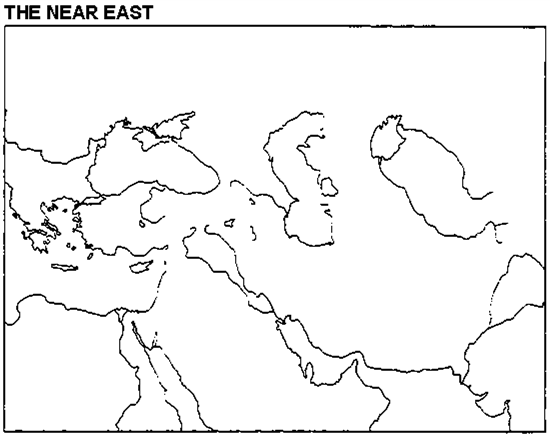Exam 2: The Hebrews: a New View of God and the Individual
During the eleventh century B.C., the twelve Hebrew tribes united under the leadership of
A
Among the ancient Jews, there existed a dynamic tension between parochialism and
D
Key Terms Instructions: Please define the following key terms. Show Who? What? Where? When? Why Important?
universalism
Universalism is a philosophical and theological concept that refers to the idea that certain principles, values, or truths are universally applicable to all individuals, regardless of cultural, racial, religious, or ethnic differences. It is often contrasted with relativism, which holds that truth and morality are culturally or individually relative.
Who?
Universalism can be discussed in the context of various thinkers, philosophers, theologians, and scholars who have contributed to the concept. It is not attributed to a single individual but is a theme that has appeared in various forms throughout human history.
What?
Universalism, in its broadest sense, is the belief that all human beings can be included within the scope of moral consideration. In a religious context, it may assert that all souls will ultimately be reconciled to a benevolent God or that salvation is available to all, regardless of faith or deeds. In ethics, it suggests that there are some moral standards that hold true for everyone. In human rights, it underpins the idea that there are fundamental rights and freedoms to which all humans are entitled.
Where?
Universalism is a concept that has been discussed and applied globally. It is not confined to any specific geographical location but is relevant in international law, global ethics, and interfaith dialogues around the world.
When?
The concept of universalism has ancient roots and can be traced back to various early civilizations and religious traditions. It has evolved over time and has been particularly influential in the development of modern human rights since the mid-20th century, following the atrocities of World War II and the adoption of the Universal Declaration of Human Rights in 1948.
Why Important?
Universalism is important because it provides a foundation for advocating for equality and human dignity. It supports the idea that there are some rights and values that transcend cultural and national boundaries, which is crucial for promoting international cooperation, peace, and justice. In a world with diverse beliefs and practices, universalism offers a common ground for addressing global issues and conflicts. It is also a key principle in the development of international law and institutions designed to protect human rights and foster global solidarity.
Which of the following CANNOT be associated with mainstream Hebrew traditions?
The text lists all of the following as essential continuities between ancient Judaism and Christianity EXCEPT
The biblical stories of the Garden of Eden and the Flood derive from
Key Terms Instructions: Please define the following key terms. Show Who? What? Where? When? Why Important?
I-Thou relationship
Instructions: Please write a thorough, well-organized essay to answer each question. Compare and contrast the status of Hebrew women with that of women in Mesopotamia and Egypt? What might account for the similarities and differences?
Instructions: Please use this outline map of the Near East to answer the question(s).
 Locate and label the homeland of each important neighbor of the Hebrew people: Egyptians, Phoenicians, Assyrians, and Chaldeans.
Locate and label the homeland of each important neighbor of the Hebrew people: Egyptians, Phoenicians, Assyrians, and Chaldeans.
Instructions: Please write a thorough, well-organized essay to answer each question. What evidence is available to scholars seeking to reconstruct the history of the ancient Hebrews, and why does it present challenges in interpretation? What scholarly controversies exist concerning the events of Hebrew history?
Key Terms Instructions: Please define the following key terms. Show Who? What? Where? When? Why Important?
transcendence
Key Terms Instructions: Please define the following key terms. Show Who? What? Where? When? Why Important?
Pentateuch
Key Terms Instructions: Please define the following key terms. Show Who? What? Where? When? Why Important?
Hebrew tribes
Filters
- Essay(0)
- Multiple Choice(0)
- Short Answer(0)
- True False(0)
- Matching(0)